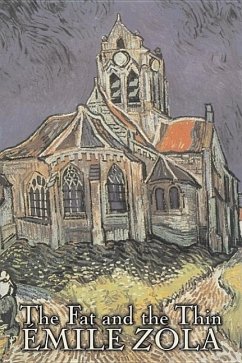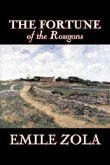The Fat and the Thin is the third novel of Zola's twenty volume Rougon-Macquart series. The Fat and the Thin is a study of the teeming life which surrounds the great central markets of Paris. The heroine is Lisa Quenu, a daughter of Antoine Macquart. She has become prosperous, and increasingly selfish. Her brother-in-law Florent has escaped from penal servitude in Cayenne and lives for a short time in her house, but she becomes tired of his presence and ultimately denounces him to the police. As a critic put it: "It also embraces a powerful allegory, the prose song of the eternal battle between the lean of this world and the fat - a battle in which, as the author shows, the latter always come off successful."
Hinweis: Dieser Artikel kann nur an eine deutsche Lieferadresse ausgeliefert werden.
Hinweis: Dieser Artikel kann nur an eine deutsche Lieferadresse ausgeliefert werden.







